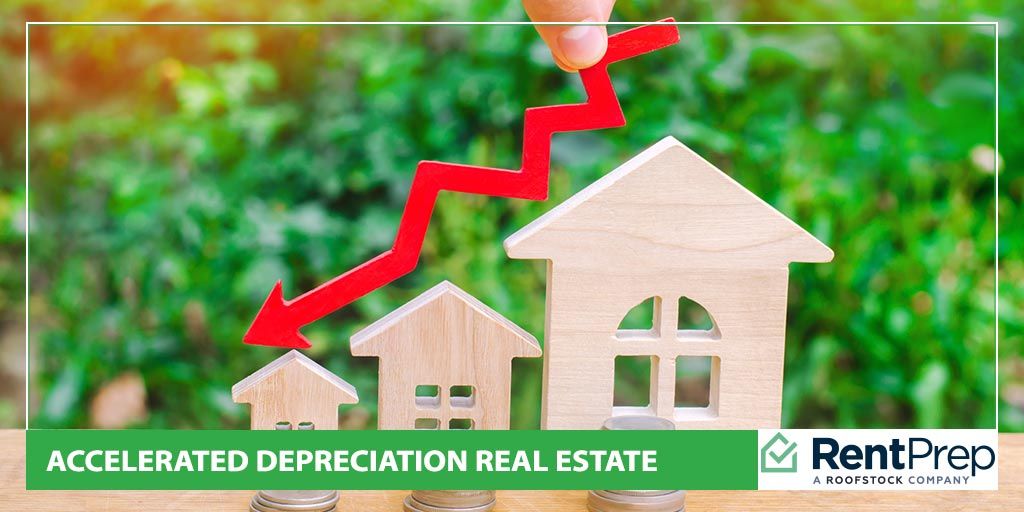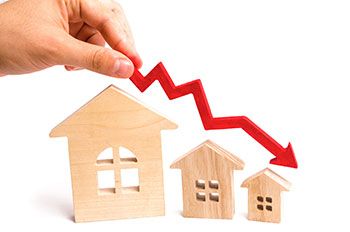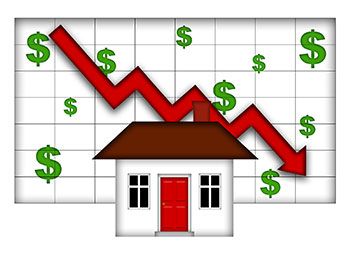
Ensuring your profit margin as a landlord is about more than property management—it’s also about tax management. Taxes play a significant role in the overall finances of your business, and they can even provide big breaks. Understanding your options for accelerated depreciation on real estate is essential so you don’t miss out on this potential opportunity.
Real estate accelerated depreciation enables landlords and investors to pay less in taxes in the earlier years of owning a property rather than dividing the entire depreciation amount over nearly 30 years. Doing this can free up cash flow early on, but the process is not without its drawbacks.
Get a complete grasp of how accelerated depreciation works in today’s guide.
A Table Of Contents On Accelerated Depreciation
Tax accounting methods confuse many landlords even after years of experience. Have you considered accelerated depreciation on your properties? Find out more about this type of depreciation and how it may be beneficial for evaluating your assets:
- What Is Accelerated Depreciation?
- The Benefits Of Accelerated Depreciation In Real Estate
- Types Of Accelerated Depreciation In Real Estate
- FAQs On Accelerated Depreciation Of Rental Property
- Real Estate And Accelerated Depreciation: A Choice That Matters
What Is Accelerated Depreciation?

Accelerated depreciation is a faster depreciation method used to increase the value that can be deducted in the first few years an asset is in service. Often used as a tax-reduction strategy, this depreciation method can adjust when and where deductions are made on annual taxes.
Accelerated Depreciation In Real Estate
When it comes to rental properties, investors utilize accelerated depreciation to depreciate items with shorter lifetimes than the property’s structure. The flooring in a house, for example, will wear out faster than the building itself. This means that flooring can be depreciated more quickly, allowing you to take a larger depreciation deduction in the early years it’s in service.
Investment properties must undergo a cost segregation study before this type of accelerated depreciation can occur. Any component of the rental property with a shorter useful lifetime can then be depreciated over its IRS-assigned useful life. Lighting fixtures and stoves, for example, can be fully depreciated in five to seven years. The property itself would typically be depreciated for over 27.5 years.
Working with a CPA or accountant will ensure you have clear and accurate information about the latest tax code regarding depreciation rules, values, and timelines.
The Benefits Of Accelerated Depreciation In Real Estate
#1: Reduce Early Investment Costs
Landlords looking to lower setup costs as they get their rental business off the ground may benefit from a short-term accelerated depreciation strategy. The first few years of owning a property will see more substantial profits thanks to increased deductions, which can help you lay the foundation for future success.
#2: Take Higher Deductions
Maximizing your early deductions after making a significant property investment will reduce how much you owe on taxes each year. The money saved on taxes can then be reinvested into your business, allowing for greater focus on growth.
#3: Tax Deferral Potential
Though the money offset by depreciation will eventually be recaptured and taxed by the IRS, it is possible to defer when that tax collection occurs. A 1031 exchange allows property owners to transfer tax liability from one property to another when the properties are used for the same purpose. This can extend how long accelerated depreciation benefits help your business find its footing.
The Downside: Depreciation Recapture
Depreciation recapture is the most important thing to consider about accelerated depreciation.
Depreciation recapture is an IRS policy that applies to all depreciation deductions regardless of the period over which they are spread. However, the implications of this policy can be more severe on accelerated depreciation assets.
The IRS considers depreciation an actual decrease in the rental property’s value. This means that, in the eyes of the IRS, the property will be deemed to have a lower adjusted value when sold. All depreciated value will be subtracted from the purchase price for this adjustment.
Then, any profit made when selling the property will be calculated from this lower adjusted value. Capital gains tax and other relevant taxes will need to be paid on the total profits.
What does this mean for investors taking accelerated depreciation?
Depreciating a property faster means that the IRS-appointed value of the property will be lower than if you took straight deductions. When selling the property, this depreciation leads you to pay higher taxes since the total taxable gains will be higher than if you had taken a standard deduction.
In either case, you will need to pay capital gains tax on the profits. The differences lie in the size of the gain and how it varies due to accelerated depreciation.
Types Of Accelerated Depreciation In Real Estate
Investors have options when it comes to accelerated depreciation. Rental real estate properties can be approached with a few different taxation methods. The best strategy for your business, properties, and tax plans will vary from other investors, so pay close attention to how each type of accelerated depreciation works.
Double-Declining Balance (DDB) Method
In the DDB method, the asset’s value depreciates twice as fast as it would under straight-line depreciation. This is a popular method of depreciation on eligible assets, and it helps reduce pretax income in a big way for many investors.
DDB is calculated by first looking up the useful life of the property. Let’s say the asset has a useful life of 10 years. Then, double the reciprocal number of this lifetime. The reciprocal, 1/10, is equal to one-tenth or 10 percent. Doubling this number gives you 20 percent. This amount will be applied to the total value remaining each tax period.
Sum Of The Years’ Digits (SYD) Method
Another accelerated depreciation method is known as the sum of the years’ digits.
This method’s name accurately describes how it’s calculated. The sum of each years’ digits is added up and this is used to generate the deduction.
Let’s once again consider an asset with a 10-year usable lifetime. Adding up each digit one through 10 gives us 55. This is a combination of all the digits of its lifetime.
From here, it’s easy to figure out the yearly depreciation of the base amount. In year 1, 10/55 would be depreciated. The following year, 9/55 would be depreciated. This will continue through year 10 when 1/55 will be depreciated.
Cost Segregation Analysis

A cost segregation analysis is typically required to set up accelerated depreciation in real estate.
The usable lifetime of a rental property is 27.5 years. The depreciable value of the property is typically deducted evenly over that period. Investors have learned, however, that it is possible to use accelerated depreciation on some parts of the property.
Completing a cost segregation study will separate fixtures, structures, and elements with different lifetime usability values than the whole property. Each asset with a shorter lifetime can then be depreciated with accelerated depreciation as the IRS allows.
Maximizing cash flow by using accelerated depreciation on assets separated in this way increases the amount of money available for your business to function and grow in the early years. However, it also complicates your taxes. Every item depreciated will need its own schedule, and you will need to keep track of these items over the next few years.
Protecting Your Profits
Handling your depreciation options while doing annual taxes is just one way you can ensure your cash flow. Another key factor is to be sure to fill your rentals with reliable tenants who make timely payments.
The key to finding these tenants is thorough and high-quality tenant screening. If cash flow is stunted and this has led you to consider accelerated depreciation, remember that it isn’t your only option. Improving your screening process can improve cash flow by increasing on-time rent payments.
Consider your options with RentPrep’s complete tenant screening packages today.
FAQs On Accelerated Depreciation Of Rental Property
How does accelerated depreciation work?
Accelerated depreciation is a type of asset depreciation that reduces the value of assets at a faster rate than otherwise achieved through standard depreciations. This method is often used by investors, landlords, and other individuals as a way to reduce taxes owed and free up capital for other purposes.
Essentially, an asset being processed with accelerated depreciation will have a higher depreciation value early on in that asset’s life. As time goes on, the amount deducted for depreciation will get smaller.
There are a few different methods for calculating accelerated depreciation. The best type to use will depend on the circumstances, but all real estate properties will need a cost segregation study to qualify for accelerated depreciation. This is because real estate properties, as a whole, are not considered eligible for accelerated depreciation by the IRS.
How fast can you depreciate real estate?
The standard depreciation period for rental property is 27.5 years. Depreciation is spread out evenly over those years. Accelerated depreciation allows the taxpayer to depreciate certain rental property assets, such as flooring or fencing, more quickly. This reduces the pretax income accredited to the individual and their overall tax burden in those early years.
The entire property, however, cannot be depreciated faster than 27.5 years without completing the necessary steps for accelerated depreciation. Faster depreciation only applies to specific parts of rental assets.
What is the best depreciation method for real estate?
As you learn more about how real estate depreciation works, you may become curious about which type of depreciation calculation is best for rental real estate. There isn’t a clear answer. Real estate depreciation methods vary, and the best method will depend on your business goals, current tax burden, and ability to handle the negatives of accelerated depreciation.
Straight-line depreciation is the most popular type of depreciation used in real estate. It is the most straightforward type of depreciation. Even when considering other types of depreciation, there often aren’t huge differences in the final financial impact when you consider the long-term tax picture.
However, that may not be the case for your property or portfolio. Work with a qualified tax accountant to get an idea of which method of depreciation will be best for your real estate properties.
How does depreciation recapture work when you sell a property?
When you sell a property on which you’ve been claiming a depreciation deduction, you will need to consider depreciation recapture as implemented by the IRS. This policy requires that income tax is paid on the profits generated from an asset that has been depreciated.
For example, imagine that you’ve been claiming a deduction on your rental property for 10 years. You sell the property and profit from the sale. During your next tax filing, you must calculate how much income you owe on the sale profits and pay the appropriate taxes to the IRS.
Keep in mind that if the property sells for less than its current adjusted value, you will not need to do this calculation.
Real Estate And Accelerated Depreciation: A Choice That Matters
When it comes to accelerated depreciation, landlords must consider it as one of their options but should do so carefully. Accelerated depreciation is a great choice when early cash flow is needed or the tax benefits will otherwise benefit the business. However, that depreciation will reduce tax credit in later years and play into the depreciation recapture if you sell early.
Work through the numbers before making a decision:
- How much benefit will your business get now by depreciating assets faster?
- Do you know when you will sell the property in question? Will the depreciation recapture cause problems at that time?
- Is there a significant difference in how much credit will be received between the different depreciation methods?
Working with a financial analyst or tax consultant on these numbers can be beneficial if you aren’t familiar with the tax code. They will be able to provide the best options for your situation so you can move forward with your business planning without regrets about how you handled accelerated depreciation on your real estate.

